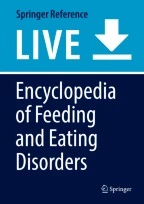
The Dutch Eating Behavior Questionnaire (DEBQ) is a 33-item self-report questionnaire developed by Van Strien et al. (1986), to assess three distinct eating behaviors in adults: (1) emotional eating, (2) external eating, and (3) restrained eating. Items on the DEBQ range from 1 (never) to 5 (very often), with higher scores indicating greater endorsement of the eating behavior.
The DEBQ was developed to capture eating behaviors implicated in the development and maintenance of obesity. The psychometric properties of the DEBQ are strong. The subscale scores evidence good internal consistency across weight category groups. In a nonclinical sample of normal weight, overweight, and obese participants, coefficient alphas ranged from .92 to .94 for the DEBQ-restrained eating subscale, .96 to .97 for the DEBQ-emotional eating subscale, and .79 to .84 for DEBQ-external eating subscale (Bohrer et al. 2015). The factor structure of the DEBQ has been supported in.